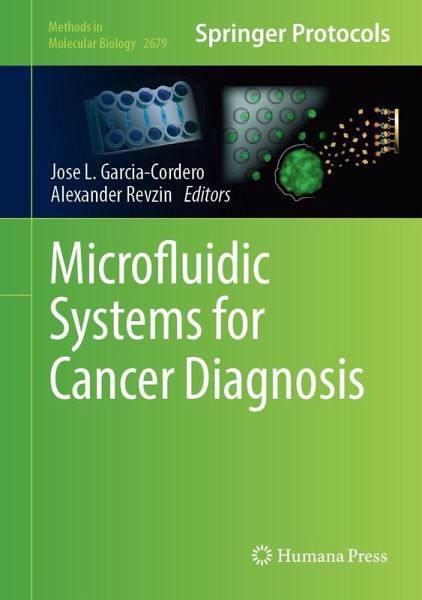
Microfluidic Systems for Cancer Diagnosis

PAYBACK Punkte
83 °P sammeln!
This detailed volume explores recent developments in microfluidics technologies for cancer diagnosis and monitoring. The book is divided into two sections that delve into techniques for liquid biopsy for cancer diagnosis and platforms for precision oncology or personalized medicine in order to create effective patient avatars for testing anti-cancer drugs. Written for the highly successful Methods in Molecular Biology series, chapters include introductions to their respective topics, lists of the necessary materials and reagents, step-by-step and readily reproducible laboratory protocols, and ...
This detailed volume explores recent developments in microfluidics technologies for cancer diagnosis and monitoring. The book is divided into two sections that delve into techniques for liquid biopsy for cancer diagnosis and platforms for precision oncology or personalized medicine in order to create effective patient avatars for testing anti-cancer drugs. Written for the highly successful Methods in Molecular Biology series, chapters include introductions to their respective topics, lists of the necessary materials and reagents, step-by-step and readily reproducible laboratory protocols, and tips on troubleshooting and avoiding known pitfalls.
Authoritative and practical, Microfluidic Systems for Cancer Diagnosis serves as an ideal guide that will be helpful to either replicate the construction of microfluidic devices specifically developed for cancer diagnosis or to catalyze development of new and better cancer diagnostic devices.
Authoritative and practical, Microfluidic Systems for Cancer Diagnosis serves as an ideal guide that will be helpful to either replicate the construction of microfluidic devices specifically developed for cancer diagnosis or to catalyze development of new and better cancer diagnostic devices.














